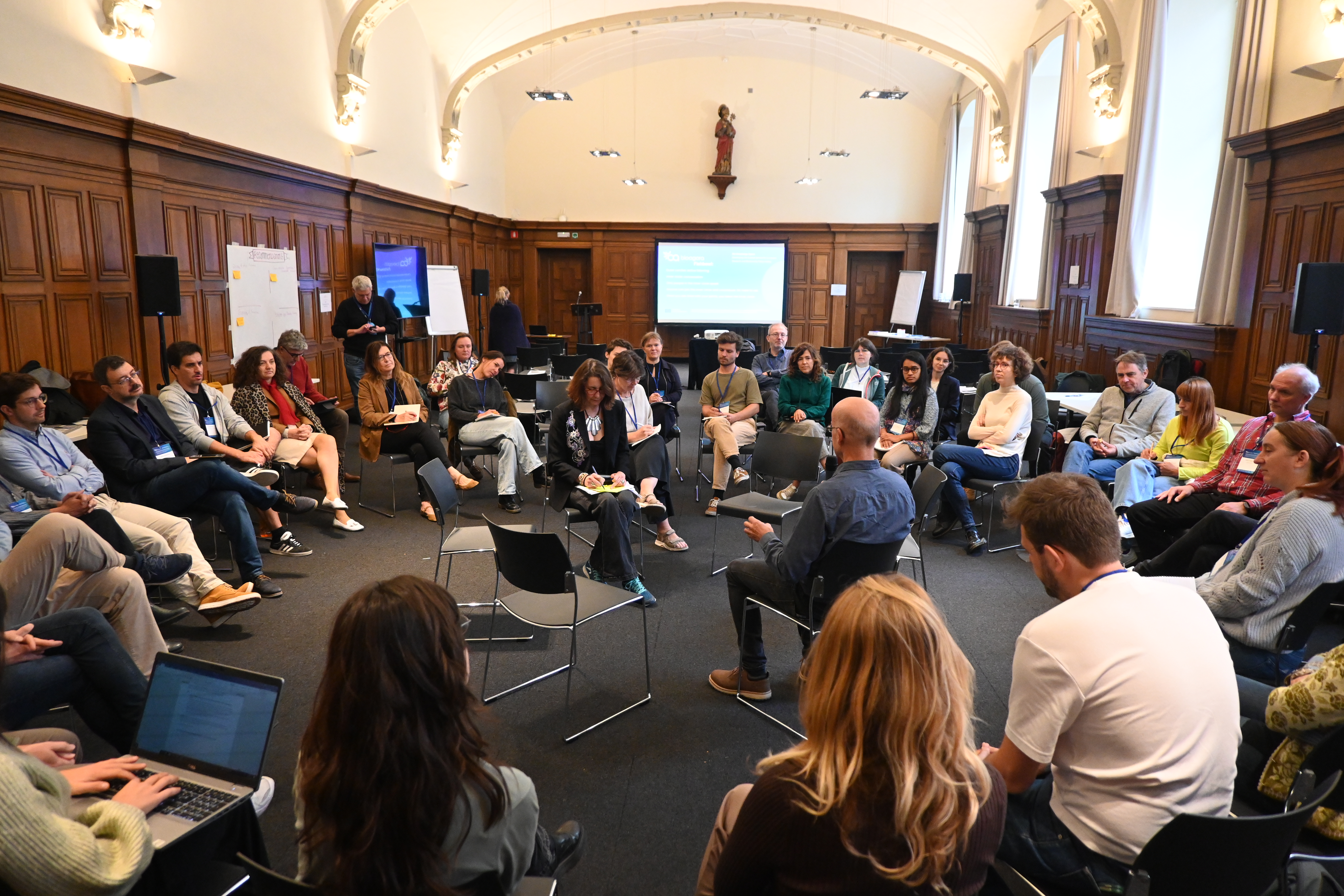On 1-2 October 2025, BioAgora hosted its Science-Policy Interface (SPI) Dialogue Workshop in Ghent, Belgium, bringing together policymakers, scientists, and stakeholders from across Europe to explore how science, policy, and practice can jointly advance the implementation of the Nature Restoration Regulation (NRR). The workshop was with a special focus on freshwater ecosystems and water resilience.
The event, held at the historic Thagaste Monastery, aimed to foster cross-sectoral understanding of the challenges and opportunities related to restoring Europe’s rivers and freshwater systems. It combined interactive dialogue, co-learning, and hands-on exercises, creating a dynamic environment for collaboration among representatives from EU institutions, Member States, academia, and civil society.
Day 1: Framing challenges and exploring perspectives
The workshop opened with inspiring words from Marie Vandewalle (UFZ, BioAgora Co-coordinator), Sibylle Schroer (IGB, BioAgora Freshwater Knowledge Exchange Network Coordinator), Jiska Van Dijk (NINA), Estelle Balian (Lead Facilitator), and Anders Iversen (DG Environment). Their introductions set the tone for two days of dialogue and practical collaboration on water resilience in the EU.
The opening session, “Framing the NRR and the current state of play,” featured a keynote talk by Anders Iversen (DG ENV, Sustainable Freshwater Management) on building a Water Resilient Europe with good ecological status and free-flowing rivers.
This was followed by a high-level panel discussion on policy coherence and cross-sectoral challenges, with contributions from:
- Anders Iversen (DG ENV) - freshwater ecosystems and NRR implementation
- Saskia Onnink (DG ENV) - agricultural and rural development challenges
- Bertrand Vallet (DG RTD) - research and innovation perspectives
- Irene Duque Femenía (Wetlands International Europe, Living Rivers Europe) - cross-sectoral challenges for river restoration
- Camelia Mihaela Kovács (DG REGIO) - major projects and water management experience
The participants discussed the interlinkages between environmental, agricultural, energy, and regional policies, identifying key challenges, conflicting priorities, and pathways for achieving policy coherence. The day continued with the interactive “Water Reflections” serious game, facilitated by the EU Policy Lab (JRC), and a field visit to Gentbrugse Meersen, a restoration site demonstrating integrated water and land management approaches.
Day 2: Unlocking solutions and co-creating recommendations
The second day focused on solutions, best practices, and collaborative design of policy recommendations. The morning began with a keynote by Daniel Hering (University of Duisburg-Essen, MERLIN Project Coordinator), who presented insights from EU Green Deal projects supporting the development of National Restoration Plans.
Participants then engaged in a fishbowl discussion to share success stories, failures, and lessons learned in overcoming implementation barriers for river restoration and water resilience.
The workshop’s Co-creation Lab invited participants to work in thematic groups on:
- Policy & Legal Coherence (NRR, WFD, CAP, Floods Directive, TEN-E)
- Cross-Sectoral Governance & Stakeholder Involvement
- Financing & Incentives (including Nature-Based Solutions)
- Monitoring, Data & Reporting (including citizen science)
Through this collaborative process, participants developed evidence-informed recommendations and identified enabling mechanisms such as partnerships, reforms, and funding instruments to support Member States in implementing the NRR.
In the afternoon, breakout groups presented their recommendations during a plenary session, followed by a roundtable discussion on lessons learned from the SPI process - reflecting on how to further improve collaboration between science and policy communities in Europe.
Looking ahead: Building the Science Service for Biodiversity
The SPI dialogue workshop marked a significant step in advancing the Science Service for Biodiversity - the key service developed under BioAgora to strengthen the EU’s biodiversity science-policy interface. The event underscored the value of dialogue, co-creation, and shared learning in building practical pathways for nature restoration and water resilience.
Join the Freshwater Knowledge Exchange Networks (Freshwater KEN) and become a part of the Science Service for Biodiversity to help shape the future of science-based policymaking for biodiversity!
